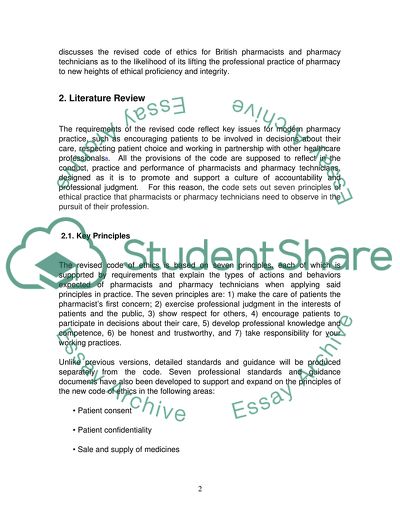Cite this document
(“The new code of Pharmacy ethics and practice in UK Essay”, n.d.)
The new code of Pharmacy ethics and practice in UK Essay. Retrieved from https://studentshare.org/health-sciences-medicine/1544254-the-new-code-of-pharmacy-ethics-and-practise
The new code of Pharmacy ethics and practice in UK Essay. Retrieved from https://studentshare.org/health-sciences-medicine/1544254-the-new-code-of-pharmacy-ethics-and-practise
(The New Code of Pharmacy Ethics and Practice in UK Essay)
The New Code of Pharmacy Ethics and Practice in UK Essay. https://studentshare.org/health-sciences-medicine/1544254-the-new-code-of-pharmacy-ethics-and-practise.
The New Code of Pharmacy Ethics and Practice in UK Essay. https://studentshare.org/health-sciences-medicine/1544254-the-new-code-of-pharmacy-ethics-and-practise.
“The New Code of Pharmacy Ethics and Practice in UK Essay”, n.d. https://studentshare.org/health-sciences-medicine/1544254-the-new-code-of-pharmacy-ethics-and-practise.


